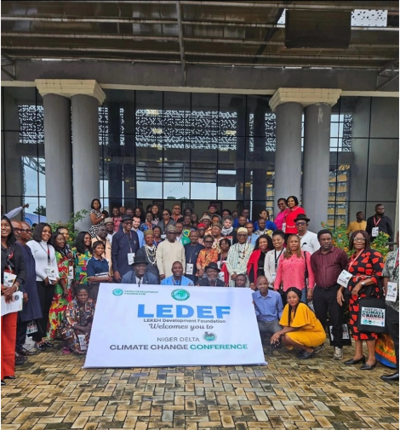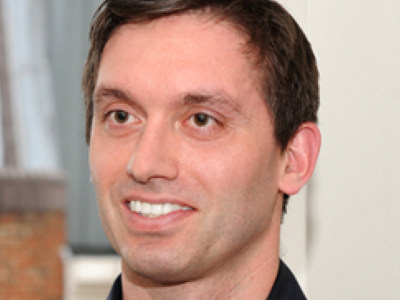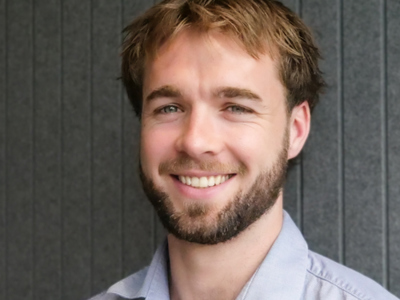
Leigh Day’s Participation and Reflections on The Niger Delta Climate Change Conference 2025
From 8–11 July 2025, Leigh Day participated in the Niger Delta Climate Change Conference (NDCCC) in Port Harcourt, Nigeria. Organised by the Lekeh Development Foundation, the conference brought together civil society, legal experts, and community leaders to address the intersecting crises of climate change, extractivism, and environmental injustice. Anthony Hayward (paralegal, International & Group Claims) attended in person, while partner Matthew Renshaw joined remotely to discuss recent developments in landmark litigation against Shell.
Posted on 25 July 2025
Litigation Against Shell - How Communities Are Using the Law to Demand Clean-Up and Justice
Part 1: Bodo Clean-Up Litigation – Exposing Inadequate Remediation
During the first part of the talk, Anthony outlined how the May 2025 Bodo trial - a case concerning Shell’s clean-up following two spills in 2008 – allegedly exposed systemic failures in Shell’s oil spill remediation. Key elements of the Claimants’ case at trial included:
- Inadequate risk assessments: Shell relied on US-based data for their Human Health Risk Assessment that failed to account for the real-life exposure of Bodo residents who live near and depend upon the contaminated land and water for survival.
- Omission of an environmental risk assessment, despite over 2,600 hectares of mangroves being destroyed and the collapse of the surrounding ecosystem.
Anthony explained that the Claimants argued at trial that Shell’s flawed approach led to unacceptably high “close-out” levels for remediation - essentially permitting harmful levels of hydrocarbons to remain in the environment. The Claimants’ experts further found that Shell’s heavy reliance on natural recovery methods such as natural attenuation (a passive remediation technique that relies on naturally occurring physical, chemical and biological processes to reduce contaminant concentrations in soil) and phytoremediation (the use of mangrove planting to absorb and break down contaminants) is inadequate for a spill estimated to have released 500,000 barrels of oil. According to the Claimants, such passive techniques could mean it takes decades before the ecosystem is fully restored. The Claimants’ case at trial was that further active remediation is imperative to narrow the timeframe in which residents remain exposed to health risks and without livelihoods.
Part 2: Ogale & Bille Nigerian Law Judgment – Shell Fail to Limit Scope of Legacy Pollution Claims
Next, Matthew discussed key findings from the June 2025 Nigerian law preliminary issues judgment, including:
- Continuing tort doctrine: The default 5-year limitation period can accrue afresh each day that pollution remains.
- Corporate liability for third-party damage: Shell can be held liable where evidence shows complicity, negligence, or systemic failures (e.g., inadequate leak detection or pipeline protection) that enable harm, even when that results from the criminal acts of third-parties.
- Constitutional rights: The judge acknowledged that oil spills might breach the right to life under the Nigerian Constitution but determined that such claims could not yet be brought against private companies in Nigerian law. As this is a novel issue, the judge left it to Nigerian courts to clarify whether companies can be held liable for fundamental rights violations caused by serious pollution.
Matthew explained how application of the continuing tort doctrine means that multinational oil corporations (“MNCs”) can be held accountable for legacy pollution, even post-divestment. Meanwhile, the finding on third-party liability resonated with those implicated by Shell’s long-running narrative of blaming communities to deflect responsibility from allegations of systemic corporate failings.
Key Themes from the NDCCC
Our talk aligned with key conference themes. Over four days, participants explored legacy pollution and calls for corporate accountability through the broader lens of environmental justice, community resilience, and systemic change. The following themes emerged as central to the NDCCC:
- Reframing ‘climate change’ in the Niger Delta - Speakers, including Ken Henshaw (director, We the People) and Mr. Seidu Issifu (Ghana’s Minister of State for Climate Change) called for legacy-driven climate action, highlighting that the term ‘climate change’ is insufficient in a region where the environment has already been dramatically altered. The Niger Delta faces not only future climate risks, but ongoing environmental harm as a result of decades of extraction: polluted air from gas flaring, poisoned water from oil spills, and devastated ecosystems.
- Extractivism and Ecocide - Speakers described extractivism - the large-scale exploitation of natural resources, primarily for export and profit, often with little regard for environmental, social or long-term economic consequences - as a toxic import of colonialism, sustained by state and corporate actors. Mr Henshaw acknowledged how the “illicit wedlock of the colonial government and the multinational oil companies” seamlessly became the “illicit wedlock of the Nigerian Government and multinational oil companies”, undermining belief in the possibility of a peaceful, harm-free society. Dr Nnimmo Bassey (director, Health of Mother Earth Foundation) summarised the Niger Delta experience as “exploitation, expropriation, extraction and extermination”.
- Divestment and Legacy Pollution - There was strong criticism of multi-national corporations (MNCs), especially Shell, for divesting from their onshore assets without addressing legacy pollution. Speakers expressed concern about the capacity and accountability of successor companies. Dr Bassey described Shell’s divestment as a “criminal flight”, noting that Shell remains operational on the ground.
- Grassroots Mobilisation and Community Agency - Celestine AkpoBari (director, People’s Advancement Centre) declared, “Nothing comes free”, and urged community ownership of advocacy. The Niger Delta Alternative Manifesto (NDAC) – which builds on The Ogoni Bill of Rights (1990) and calls for a comprehensive ecological audit, reparations, gas flaring bans, and long-term climate resilience strategies - was cited as a vision for ecological justice, self-determination, and a rights-based approach to resource governance.
- Gendered Impacts of Pollution - Climate harms disproportionately affect women. In a Bayelsa State study, Dr Bieye Renner Briggs (academic specialising in health impacts of climate change) found all 80 women tested had 16 polycyclic aromatic hydrocarbons (a group of toxic chemical compounds found in crude oil, and linked to miscarriages and birth defects) in their blood. Dr Emem Bridget Okon (executive director, Kebetkache Women Development & Resource Centre) stressed that women’s voices must be central to this discussion.
- The Role of International Solidarity - Speakers welcomed international solidarity as vital. Mr Henshaw called for a “community of sufferers” united in resistance, while Mr. Issifu stressed the need for West African unity in tackling climate threats together. Caroline Dennett’s solidarity speech was well-received in this context.
- Community Data Gathering and Legal Strategy - Data collection, documentation, and grassroots monitoring were positioned as essential tools in facilitating accountability. Okoro Onyekachi Emmanuel (executive coordinator, Media Awareness and Justice Initiative) used examples from evidence-gathering processes in the Ogale and Bille Litigation to encourage communities to quantify damages and record pollution impacts (e.g., crop loss, spill frequency) to support future legal claims.
- Disinformation and Narrative Control - Mr Henshaw identified disinformation as the “new face of the sickness”, with MNCs reframing communities as pipeline saboteurs, and the government deflecting blame for floods onto Cameroon’s Lagdo Dam. Shell’s ‘green transition’ divestment narrative was similarly critiqued: for example, gas flaring emissions are effectively offloaded to Renaissance, which continues the practice. Speakers called for a more representative counter-narrative: one of exploitation, expropriation, extraction and extermination (Dr Bassey).
Reflections
The conference underscored that justice in the Niger Delta demands a unified strategy of litigation, community action, and international solidarity. Leigh Day remains committed to supporting affected communities in holding MNCs accountable, and to advancing international legal frameworks that ensure the environment and human rights are protected.







